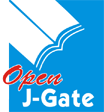Main Menu
Home
About Us
Call For Paper
Chief Patron
Patron
Advisory Board
International Editorial Board
Technical Advisors
Associate Editor
Reviewers
Conference Organizers
 Generate E-Certificate
Generate E-Certificate
 Past Issue
Past Issue Other
Special Issue
Indexing and Listing
Authors Guidelines
Past Issue
Past Issue Other
Special Issue
Indexing and Listing
Authors Guidelines
 Download Paper Template
Publication Fee
Download Paper Template
Publication Fee
 Online Payment
Review Process
Copyright Form
Publication Ethics
Contact Us
Admin
Disclaimer
Online Payment
Review Process
Copyright Form
Publication Ethics
Contact Us
Admin
Disclaimer
 Generate E-Certificate
Generate E-Certificate
 Past Issue
Past Issue Other
Special Issue
Indexing and Listing
Authors Guidelines
Past Issue
Past Issue Other
Special Issue
Indexing and Listing
Authors Guidelines
 Download Paper Template
Publication Fee
Download Paper Template
Publication Fee
 Online Payment
Review Process
Copyright Form
Publication Ethics
Contact Us
Admin
Disclaimer
Online Payment
Review Process
Copyright Form
Publication Ethics
Contact Us
Admin
Disclaimer
Date/Time
News and Events
Create & Edit Pdf

Serene Docs
Published Books
Browse Books
Dates for Author
 Call for Papers
Call for PapersFebruary 2026
Volume 16, Issue 02
Send manuscripts to:
[email protected]
For UGC CARE, Scopus and Web of Science Publication:
Whatsapp: +1 469-844-0367
India Helpline
Indexing
ISSN: 2249-0558 |
Volume 10, Issue 5 (May 2020)
| PARTICULAR | Page No. |
|
Ms. Sarah D’souza
Abstract: In the recent situation there is an increased level of stress that is creeping into all areas of the human life. Coping with these strenuous situations and striving to maintain a work – life balance is often a challenging task. There is however, an imminent requirement for an individual to possess emotional stability in order to battle the various work and life stressors. This emotional stability is determined by the individual’s emotional intelligence. Emotional Intelligence (EI) is the ability to control one’s emotions and to handle interrelationships with regard and empathy. This competency complements professional success and mainstream IQ in general. EI focusses on improving the well – being of an individual. This entails the complete mental, physical, emotional and spiritual state, leading to becoming a very eminent forecaster of psychological happiness. The purpose of this paper is to find the influence that emotional intelligence has on job stress. It will also address the dimension of work – life balance and the need for organizations to incorporate work friendly policies to increase employees’ efficiency and performance by building a suitable work culture and climate. Download full Length Paper...... |
1-9 |
|
Makamache Wiklef, Chikwature Whatmore
Abstract: The Research investigates Co-creation of products and services as a new way to create value, both for customers and for businesses. Data collected was presented qualitatively and quantitatively using tables, and graphs and also descriptive presentations. The sample comprised 15 respondents out of the total population of 33. Participating customers were chosen based on judgmental nonprobability sampling method because it was necessary to judge on the type of customers who could provide more sufficient and reliable information. The questionnaire as a research instrument was used in collecting data, this is a sheet of paper consisting of a series questions in a format which the respondents answers, and it was used for gathering information. The questionnaire was composed of both structured questions which were simple and relatively easy to administer and unstructured questions, which assessed the views of the respondents without guiding them. The findings revealed that changing customer needs; customers’ willingness to co-create; reducing product failure; and increasing customer loyalty are the major factors driving co-creation of tourism and hospitality offerings at Zimbabwe`s prime tourist destination. These factors can therefore be concluded to be the general rationale behind co-creation. It is recommended that organisations should not concentrate on employee empowerment and creating a customer responsive culture but rather should move towards the virgin lands of co-creation. Download full Length Paper...... |
10-29 |
|
Makamache Wiklef, Chikwature Whatmore
Abstract: The Research investigates the finding enduring strategies to harness revenue from vendors. The convenience sampling technique was adopted due to budget and time constraints. The questionnaires were used as data collection tools. The researcher gathered data for the study through administering questionnaires as well as carrying out interviews. 35 vendors were enumerated while 15 respondents from the Mutare City Council and the Zimbabwe Republic Police were interviewed during the study. From the onset it was found that the majority of respondents were of the view that, the council is unprofessional and use heavy-handed approaches when dealing with vendors. Simultaneously, it was also observed that the Local Authority is using repressive and outdated laws that it inherited from the colonial era. The Mutare City Chief Security officer carry out professional and customer relations training for Council officers who collect revenue to improve their professional standards. The Town Clerk to engage Senior ZRP officers who brief members going on joint patrols with council members to ensure that they instruct all officers (both from Council and ZRP) exercise restraint, professionalism and customer care when dealing with vendors during the execution of their duties. The Town Clerk ensures that council employees are incentivised for them to perform of their duties. Download full Length Paper...... |
30-52 |
|
Dr. Rana Rohit Singh, Abhishek Singh
Abstract: Nature is uncertain and unpredictable. The same is true with the life of an individual which is surrounded by risks and uncertainties in this volatile world. Any kind of misfortunemay lead from minor to serious injuries or even loss of life. Diseases too never knock our doors to enter our body. Money was and will never ever be able to buy life or cure diseases till the existence of this world but to cope up with hard times in our life and life of our near and dear ones when we leave for heavenly abode,insurance is the perfect solution. Generally, insurance is of two types: life insurance and non life insurance or general insurance. The present paper is an attempt to outline the current picture of health insurance sector in India which is a part and parcel of general insurance. Health insurance sector in India has gained huge escalations since liberalization due to introduction of private health care financers, increase in health consciousness among all sections of the society, increase in income of the households, price and service competition between health insurers and absence of bureaucratic attitude in health insurance employees Download full Length Paper...... |
53-67 |
|
Makamache Wiklef, Chikwature Whatmore
Abstract: The research was carried out to explore the effects of Non-tariff barriers to trade on economic growth in Zimbabwe. This study used the Logistics (Logit) model to quantify the impact on economic growth caused by Non-tariff barriers (NTBs) to trade in general, particularly the SI 64 of 2016. The results of the study revealed that Anti-dumping Laws and, Intellectual property rights, import licenses and customs valuations are respectively 0.9 times and 0.7 times less likely to yield economic growth in the Zimbabwean context. The findings also suggested that positive improvements in export measures are more than 2 times more likely to ignite economic growth and development and more importantly, a positive strust in implementation of the the Statutory Instrument 64 of 2016 is approximately 1.13 times more likely to yield significant economic growth in general, particularly in the Zimbabwean context. Based on the results, the current study concluded that implementation of the SI 64 of 2016 has brought into effect, considerable success in the Zimbabwean economy. Although the same Statutory Instrument 64 of 2016 has brought about a notable success in the domestic manufacturing industry, its introduction was received differently by various stakeholders. The appetite for imported products grew among local consumers who found it cheaper to substitute locally manufactured products with cheaper imports. Consequently, local companies suffered as a result of the flooding of imports which prompted government intervention to rescue domestic manufacturers. This study also recommended that Zimbabwe must invest more in infrastructure development for the purpose of trade facilitation. Limited testing infrastructure constrains the ability of members to sign mutual recognition agreements with regional partners and instead, the fallback position becomes the standards of the most dominant trading partner, which may themselves constitute NTBs for lesser-developed regional partners. Download full Length Paper...... |
68-93 |
|
Chikwature Whatmore, Makamache Wiklef
Abstract: This study sought to determine The Cash Management Systems in Government Institutions: A Case of a Mutare Polytechnic 2015-2018. In this study a total of 50 participants were involved. Questionnaires and interviews were used as research instruments. The purposive and convenience methods were used to provide information on how Mutare Polytechnic operates its cash management system and the challenges involved thereof. The study showed that government institutions like Mutare Polytechnic, while they have a very sound cash management system guided by treasury instructions, the cash management system poses a lot of critical challenges in running operations due to its rigidities mostly posed by treasury policies. The study recommends that the cash management policies and procedures manual should be revamped in a move to address the challenges associated with this system. This helps employees to have updated information on the cash management system, that is, due diligence and transparency on the management activity and this also shows standards of professionalism. This study also recommends that forecast cash flows must be accurate and current in order to have an accurate cash position daily, weekly or monthly. Bureaucracy is one animal that should be done away with. The Red, red tape is retarding expedition of implementing profits Download full Length Paper...... |
94-112 |
|
Mr. Pradipta Bose, Dr. Goutam Sengupta
Abstract: The aftermath of globalization has seen a radical change in technology vis a’ vis intense global business competitions over the years. Ever changing customer’s expectations, fluctuating demand and competition in the market has posed challenges of competitiveness and survival to all the constituents of the economy, especially for a developing country like India, where many organizations are struggling to conform to the world class standards. The philosophy of lean management has evolved over the years and is based on a set of fundamental tools and techniques that is recognized as one of the best methods of removing this waste, reducing costs and transforming business performance. In the past, due to financial restraints, this has been seen as a tool purely for large organizations. While larger entities have the budget and resources to work on removing this process ‘waste’,MSMEs often don’t have access to the same resources feeling the pinch and impact of every cost. However, using new tools and methodologies, MSMEs can now leverage lean improvement in a manner specifically tailored for their needs and within a realistic cost bracket. In this article, the author has intended to showcase the relevance and applicability of Lean Manufacturing concepts to the MSMEs for achieving competitiveness and sustainable business growth. Download full Length Paper...... |
113-126 |
|
Chikwature Whatmore, Makamache Wiklef
Abstract: The study is an analysis of the cash flow management by informal traders at Mutare Flea Market in the unstable economy of Zimbabwe. The role played by informal business activities in the economic development of a country has been noted in nearly all the counties of the world. The quantitative approach dictated the research activities where a sample size of 82 was randomly selected in line with the probability sampling framework. Their views and perceptions were descriptively analysed and presented in form of frequency percentage tables and graphs. The study noted that the mobile money transfers, dodging the remittances of tax and other obligations, exploiting local resources for trading and diversification of trading products as strategies used by informal traders for survival. The researcher recommends that cash flow management can be successfully managed by the establishment of low interest loans for business loans to informal traders, capitalizing on local resources for products and trading essentials, creation of bank accounts that charge as you earn or low charging accounts, education on financial literacy through workshops and networking and the rotating of savings and credit associations. Download full Length Paper...... |
127-150 |
|
Chikwature Whatmore, Makamache Wiklef
Abstract: These informal business activities include informal trading which is becoming popular as a result of the push for entrepreneurial hubs, discounted products and gathering space for various activities. However, in Zimbabwe, informal traders are hit by cash shortages due to economic challenges facing the country.This study aims to analyse their cash flow management, drawing with reference to Mutare Flea Market. The study synthesizes the findings from the secondary data reviewed from prevailing bodies/sources of literature and the primary data gathered using a quantitative approach where data were collected using 82 survey questionnaires. The informal traders are encountered by challenges such as site of operation and rights to trading space complexities, transportation of products to trading places and homes, negative trade policy processes, lack of capital or survival funding and seasonal changes. The cash flow management was analysed, drawing inferences from the Mutare flea market in Zimbabwe. From the sample which was taken, the researcher finds out that the majority of the informal traders in Mutare Flea markets evade payment of taxes, do not bank their money and use mobile money services. Download full Length Paper...... |
151-169 |
|
Aakash Chhablan
Abstract: We live in unprecedented times where crisis such as Covid-19 can shape world’s today and tomorrow. In the crucible of crisis, resilient leaders are defined first by who they are and what they do at different times and across multiple priorities. Leaders in different organizations look for specific guidance to navigate through the impacts of the current challenge and emerge more resilient. There are three distinctive timeframes depending on the phase of the crisis: Respond, Recover or Thrive. These different phases demand different actions from leaders. Furthermore, these actions are broken in to six priorities: Command Center, Workforce and strategy, Business Continuity/Financial, Supply Chain, Customer Engagement, and Digital Capabilities that align to various leaders in every organization. Download full Length Paper...... |
170-175 |
|
Azimov S.S
Abstract: This article is devoted to the consideration of issues related to the tax in-house review. In addition, the article analyzes the advantages of using the data by the State tax authorities when conducting tax in-house review. Moreover,in reliance upon the statistical data, the article reveals possibilities to raise the amount of taxes and other compulsory payments paid to the state budget. Relevant scientific proposals and practical recommendations have been developed on the basis of the research results. Download full Length Paper...... |
176-188 |
|
Ergashev Sherzod Tashpulatovich
Abstract: This article is devoted to the consideration of the peculiarities of the issues of organizing economic analysis when managing motor vehicle companies, in particular, organization of the economic analysis for management decision-making. In addition, it examines the indicators used for making management decisions, including depreciation and recovery ratios of fixed assets, daily turnover of receivables and payables, as well as profitability indicators used at motor vehicle enterprises. On the bases of the theoretical and methodological bases of the researched problem the author has developed relevant conclusions. Download full Length Paper...... |
189-199 |
|
Prof (Dr)Goutam Sengupta, Prof Pradipta Bose
Abstract: Coronavirus COVID-19 had disrupted the supply chains of all enterprises and particularly those who had global sourcing links. During the last two to three decades most of the supply chains had gone global in order to reap the benefits that global supply chains provide with respect to integral cost, total quality and time to market. COVID -19 had changed abruptly the demand as well as the supply side of the chain and the supply chain actors were rooted out from the bases. Asthe impact of this was severe and shall completely re-define the demand, supply, consumption patternof the post COVID supply chains, it was felt necessary to undertake a research study involving supply chain practitioners and expertsacross industry domains to understand how the solutions for post COVID supply chains shall emerge. This article enumerates the backdrop and details of the aforesaid research work. Download full Length Paper...... |
200-209 |
|
Yashika Sharma, Mannu Garg, Ashima Bansal
Abstract: In this era of modernization, it has become a challenge for each organization to acquire efficient employees who work for the welfare of the organisation. Simultaneously, it is also a challenge for compensating the staff members in accordance with their performance and which works as a motivation. Also, there is a robust link between compensation management and employees performance. The variables which have impact on employees‟ performance are wages & remuneration, working hours and promotional policies of the organisation. The goal of this research paper is to examine compensation management required to retain employees. Primarily, aim of this Research paper is to study the compensation management and related aspects and to know the impact of compensation management on employees‟ performance. Employees must be managed properly and timely by providing best remuneration and compensation as per the standards. The lucrative compensation will serve the necessity for attracting the pre-eminent employees and helps in retaining them. In view of this research paper, main emphasis has been made on concept, need and importance of compensation management in improving the performance of the employee. Data has been collected from multiple sources of evidence, including various books, websites & journals. The paper describes the role of compensation management in the different organizations and concludes that it is an important tool in improving the performance of the staff members which additionally improves the organizational productivity. Download full Length Paper...... |
200-209 |
|
Atul Narayan Pathak, Pardeep, Yusuf, Naveen Kumar
Abstract: Traffic structuring utilizes building methodologies and strategies to achieve the safe and time capable improvement of individuals and items on roadway. The safe and time capable improvement of the people and items is depends upon traffic stream, which is clearly identified with the traffic properties. The three principal limits of a traffic stream are volume, speed and thickness. Without fruitful organizing and traffic the administrators of the town, the current road structure can't give food the more drawn out term needs of city. Individual by walking and vehicle volumes have extended in a general sense inside the most forward-thinking decade because of the distinction inside the monetary issues of the work families. The current work inspects traffic qualities inside the city of Guru-gram at picked need crossing points. During this work complement was given on traffic volume and along these lines the assessment was brought out through fundamental traffic stream learns at the picked crossing points in Gurugram city. Traffic stream is focused by manual procedures. For better understanding of the current status of traffic stream at the crossing point, traffic study is driven. Traffic volume is normally conveyed with respect to PCU. With the assistance of the information collection, an endeavor had been made to get a handle on the traffic structures during different time periods. Control at that convergence is also dependent upon the traffic stream qualities. In this way the results from the current examination are helpful in controlling the traffic at the intersection point and besides in proposing a portion of the restorative measures to upgrade the traffic security inside the area Download full Length Paper...... |
210-215 |
|
Prof. Preeta Sinha
Abstract: From a single-player monopoly in 1964, the Indian mutual fund industry has evolved into a high-growth and competitive market on the back of favorable economic and demographic factors. As of now, 44 asset management companies (AMCs) are operating in India with assets under management (AUM) of 24.55 trillion as on May 31, 2020.This was the second consecutive yearly rise in the industry's assets, after a drop in asset base for two preceding years. Most of the gains in 2020 came on the back of strong inflows into liquid and debt funds since investors are only cautiously positive about investing in stocks.This paper aims to provide the opportunities which are unexplored and the challenges which the Mutual Fund Industry is facing in the current slow economic growth scenario. Download full Length Paper...... |
216-223 |
|
Manoj Kumar
Abstract: A well-working production network is a key to progress for each business substance. Having a precise projection on stock offers a considerable upper hand. Download full Length Paper...... |
224-231 |
|
Neeraj verma and Dr. Manish Varshney
Abstract: Advances in wi-fi technology and hand held computing devices have added revolution inside the location Download full Length Paper...... |
232-241 |













